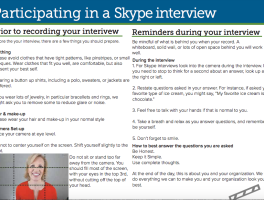Action Step 9: Personal Interests
I believe the Personal Interests section on a resume is much more important than most people realize because Hiring Managers want to hire people they will enjoy working with.
When a Hiring Manager gets more resumes from qualified candidates than they want to interview, an appealing Personal Interest section can get your resume into the ‘short stack’ of people who will score an interview.
Here’s how you can have the most effective education section possible…

